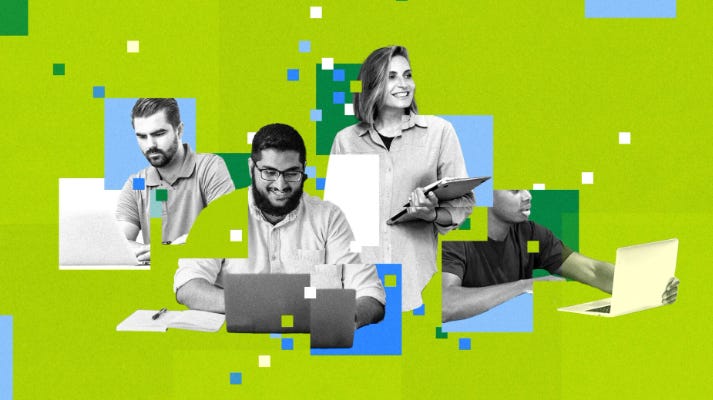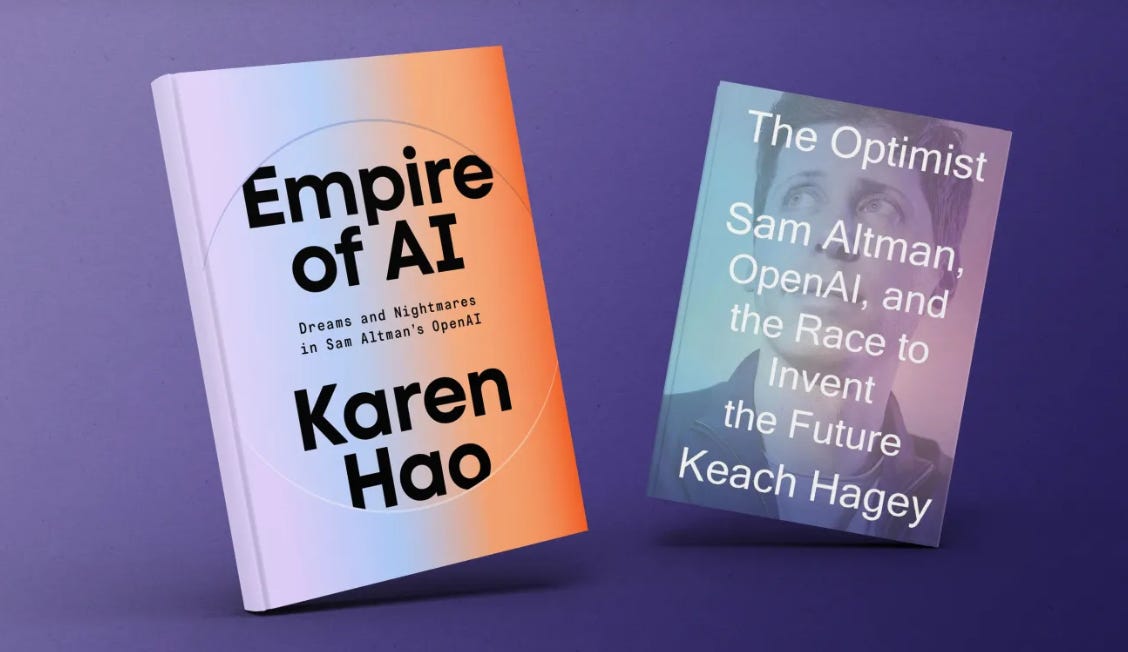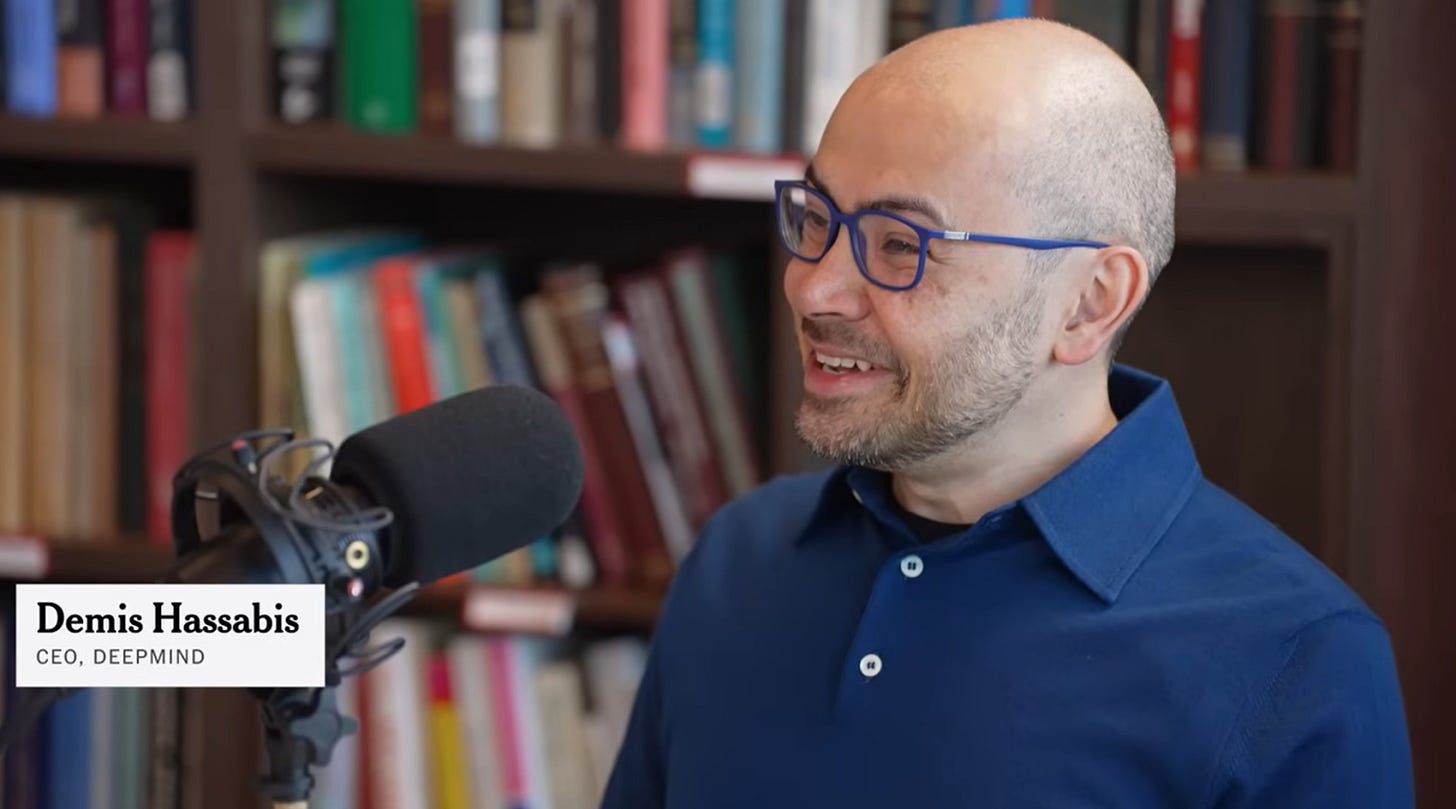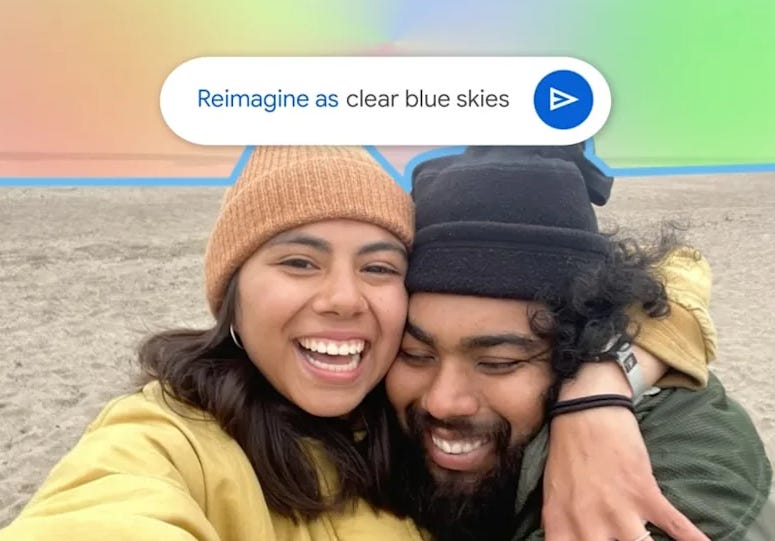Dive in — Agentic AI changing the workforce // OpenAI — The power and the pride // AI claims debunked - Gaza video proven real after viral speculation + more
Expand your understanding of artificial intelligence daily, with a curated, daily stream of significant breakthroughs, compelling insights, and emerging AI trends that will shape tomorrow.
Agentic AI is already changing the workforce
Emerging research out of Harvard Business School and the Digital Data Design Institute shows that AI agents are fast becoming much more than just sidekicks for human workers. They’re becoming digital teammates—an emerging category of talent. To get the most out of these new teammates, leaders in HR and procurement will need to start developing an operational playbook for integrating them into hybrid teams and a workforce strategy. Those who take the time to do so will unlock not just efficiency but a more scalable and resilient form of collaboration.
It’s already happening: Deloitte, for example, reports that it in the process of applying AI agents to “every” enterprise process, including a marketing agent that orchestrates many tasks focused on optimizing their customers’ journeys through their site. And some talent firms, among them rPotential (a spin-off from global staffing giant, Adecco) have reimagined themselves as not just providers of human talent but also architects of a broader model that includes both people and AI.
Read more | HARVARD BUSINESS REVIEW
OpenAI: The power and the pride
Two new books attempt to tell the story of Sam Altman’s OpenAI, its ambitions, and its growing empire.
The first is simple: It is the story of ambition overriding ethics. The history of OpenAI as Hao tells it (and as Hagey does too) is very much a tale of a company that was founded on the idealistic desire to create a safety-focused artificial general intelligence but instead became more interested in winning. This is a story we’ve seen many times before in Big Tech. See Theranos, which was going to make diagnostics easier, or Uber, which was founded to break the cartel of “Big Taxi.” But the closest analogue might be Google, which went from “Don’t be evil” to (at least in the eyes of the courts) illegal monopolist. For that matter, consider how Google went from holding off on releasing its language model as a consumer product out of an abundance of caution to rushing a chatbot out the door to catch up with and beat OpenAI. In Silicon Valley, no matter what one’s original intent, it always comes back to winning.
The second theme is more complex and forms the book’s thesis about what Hao calls AI colonialism. The idea is that the large AI companies act like traditional empires, siphoning wealth from the bottom rungs of society in the forms of labor, creative works, raw materials, and the like to fuel their ambition and enrich those at the top of the ladder. “I’ve found only one metaphor that encapsulates the nature of what these AI power players are: empires,” she writes.
Read more | MIT TECHNOLOGY REVIEW
DeepMind CEO Demis Hassabis on how AI is reshaping Google | Interview
There's a noticeable shift in Google's openness towards discussing Artificial General Intelligence (AGI). Hassabis explains that the AI division, particularly Google DeepMind, has become central to Google, acting as its "engine room".
He suggests that AGI, or human-level general intelligence, might be closer than previously thought and will have widespread impact.
The rapid pace of AI development presents a challenge in productizing the technology. Hassabis notes that the tech stack is constantly evolving, making it difficult to bet on current capabilities when they could significantly improve in a year. This requires product teams with deep technical understanding to anticipate future technological advancements.
Watch | YOU TUBE
Baltimore to launch AI-enhanced 911 system during Artscape festival
The new system integrates AI with geolocation and real-time call routing. During the event, a team of dedicated dispatchers working from the city's Emergency Operations Center (EOC) will be able to pinpoint incidents with zone-specific accuracy across all seven designated Artscape areas.
Using remote call-taking and geofencing technology, calls originating from the festival can be separated from the city's regular call volume, helping to ease strain on the broader 911 system.
Read more | CBS NEWS
AI claims debunked — Gaza video proven real after viral speculation
The video, which started circulating Tuesday, shows a person in a camouflage-print face covering and baseball cap making a heart sign and a “shaka” sign with their hands in front of a large crowd of Palestinians gathered along rows of fences, waiting for food aid at the Tal as Sultan distribution site in Rafah.
A combined analysis from NBC News and Get Real Security, a cybersecurity company that specializes in detecting generative AI, proved the video was not made with AI, finding no evidence of AI generation or manipulation in the video.
NBC News geolocated the video to inside the Tal as Sultan aid distribution site, recently constructed by Israel’s civilian policy unit — the Coordinator of Government Activities in the Territories — in partnership with the Gazan Humanitarian Foundation (GHF).
Read more | NBC NEWS
The US′ AI love affair with the UAE isn’t just about access — it’s about dominance
Deep in the oil-rich deserts of the Middle East, the United Arab Emirates is on a mission to establish supremacy in the field of artificial intelligence.
Seven thousand miles across the planet, the United States, led by President Donald Trump, wants American firms to dominate the global AI race.
While their goals may be separated by continents, their ambitions are strikingly aligned.
Read more | CNBC
Top AI CEO foresees a white-collar job bloodbath
Dario Amodei — CEO of Anthropic, has a blunt, scary warning for the U.S. government and all of us.
AI could wipe out half of all entry-level white-collar jobs — and spike unemployment to 10-20% in the next one to five years, Amodei told us in an interview
Amodei said AI companies and the government need to stop "sugar-coating" what's coming: the possible mass elimination of jobs across technology, finance, law, consulting and other white-collar professions, especially entry-level gigs.
Lawmakers don't get it or don't believe it. CEOs are afraid to talk about it. Many workers won't realize the risks posed by the possible job apocalypse — until after it hits. "Most of them are unaware that this is about to happen," Amodei told us. "It sounds crazy, and people just don't believe it."
Read more | AXIOS
'Stop using my voice' - New train announcer is my AI clone
Ms Potter said she did some work for ReadSpeaker in 2021 which she was told would be used for accessibility and e-learning software.
But two years later, when the job was largely forgotten, a friend sent her a link to ReadSpeaker's website.
Ms Potter opened the page to find Iona - a text-to-speech programme marketed as a red haired woman standing in a Scottish glen.
"It is my voice - I'm absolutely certain it's my voice,” she said.
Last week Ms Potter discovered the voice was being introduced across ScotRail after reading a BBC Scotland online story.
One passenger said: "It was weird. I could tell it was AI because it sounded so robotic."
Read more | BBC
Google Photos gets new AI features for its 10-year anniversary
The redesigned Photos adds AI-powered editors previously exclusive to the Pixel 9's Magic Editor. That includes Auto Frame, which suggests crops for your pics. If that requires new parts, it will use AI to generate them.
Also moving over from the Pixel is Reimagine. That's where you can add elements like fall leaves or green grass that weren't there. It can be equal parts neat and unsettling. We described it as "blurring the line between which of your memories are real and which are not."
The results are convincing enough that Google recently began watermarking them as AI-generated.
Read more | ENGADGET
‘Mountainhead’ mines AI anxieties at just the right time
“Create a movie that feels like it could be set in the world of ‘Succession’ but with entirely different characters populated from Silicon Valley instead of legacy media. Make a satire of what the worst case scenario of AI run amok, leavened with plenty of humor in order to avoid inducing depression.”
That might be the best way to explain the new movie “Mountainhead,” though it’s not the product of any software. It’s just a fever dream from the brilliant mind of mere mortal Jesse Armstrong, creator of “Succession.”
Read more | VARIETY
Unmissable AI
Your daily dose of curated AI breakthroughs, insights, and emerging trends. Subscribe for FREE to receive new posts, thanks!










